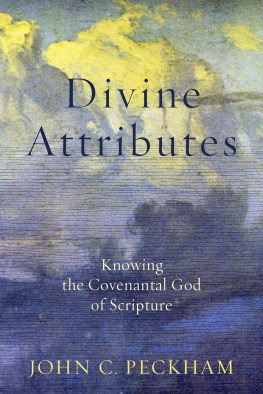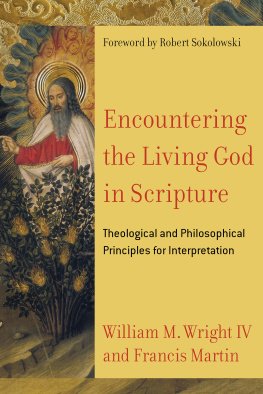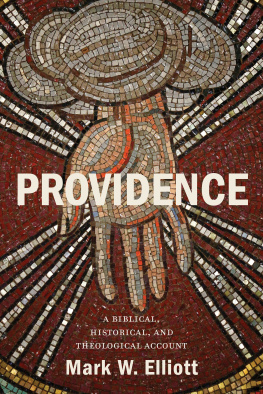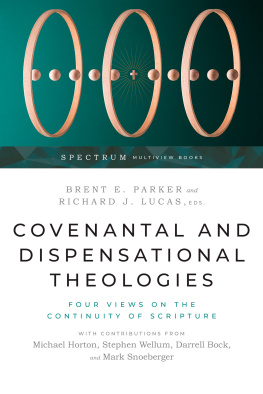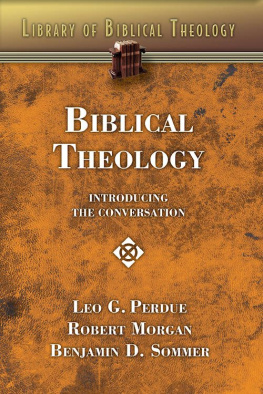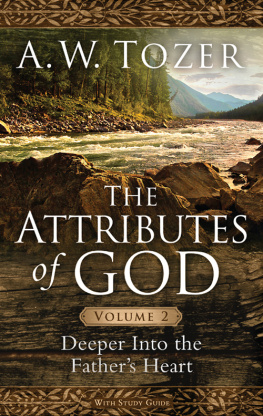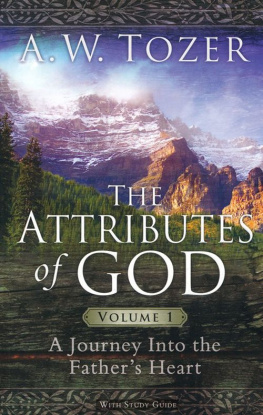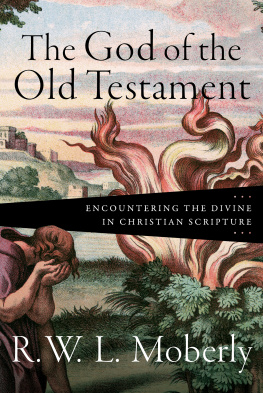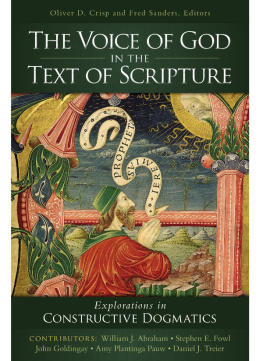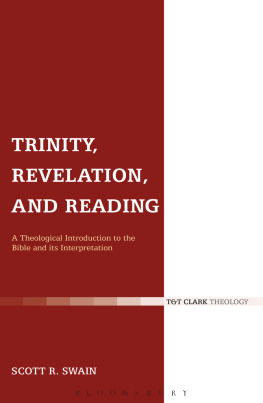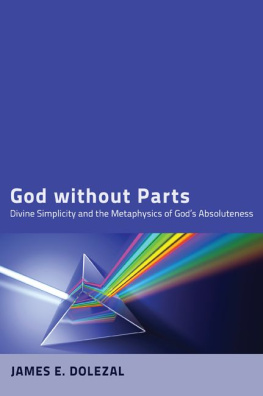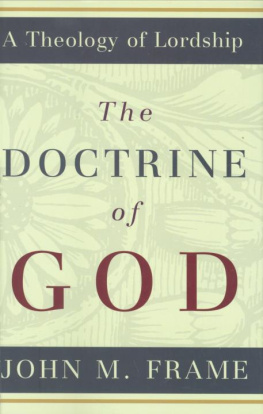Endorsements
In this accessible and engaging work, John Peckham outlines and engages with many of the ongoing debates in philosophical theology about Gods attributes, exploring the biblical warrant for many of classical theisms claims about what God must be like if he is indeed maximally great. What emerges from Peckhams own biblically rooted approach is an immensely attractive picture of a God who is great in terms of his capacity for, and commitment to, relationships of love. This book covers a tremendous amount of ground in a short space and is very useful as a resource for ongoing discussions of perfect being theology. The book also serves as a penetrating challenge to rethink the question of whether our starting point for a doctrine of God should be philosophical ideas of perfection or biblical themes of covenant. Thoughtful, informative, and highly recommended.
Kevin Kinghorn , Asbury Seminary
This book provides an excellent exposition and defense of moderate classical theism. Peckham displays vast knowledge of a wide range of biblical, philosophical, historical, and contemporary sources. He offers sagacious evaluation of controversial issues, and his covenantal approach is a significant contribution. After reading this book one feels a deep sense of gratitude for gaining a better understanding of the God whom we worship.
Andrew T. Loke , Hong Kong Baptist University
Peckhams Divine Attributes offers a much-needed voice in contemporary debates over the nature of God. For quite some time, the debates seem to be between those who wish to maintain a strict classical conception of God and those who affirm an open and relational model of God. What Peckham offers is a genuine middle ground between these two views that affirms traditional understandings of divine foreknowledge but also offers a relational and covenantal God with the rich emotional life that Scripture proclaims. Divine Attributes will be a game changer for debates about the nature of God. Strict classical theists and open theists must deal with the powerful biblical case that Peckham presents. If you are looking for a theology text that is faithful to the biblical witness and sensitive to the philosophical challenges that arise from thinking about the nature of God, then Divine Attributes is the book for you.
R. T. Mullins , Helsinki Collegium for Advanced Studies
Title Page
Copyright Page
2021 by John C. Peckham
Published by Baker Academic
a division of Baker Publishing Group
PO Box 6287, Grand Rapids, MI 49516-6287
www.bakeracademic.com
Ebook edition created 2021
All rights reserved. No part of this publication may be reproduced, stored in a retrieval system, or transmitted in any form or by any meansfor example, electronic, photocopy, recordingwithout the prior written permission of the publisher. The only exception is brief quotations in printed reviews.
Library of Congress Cataloging-in-Publication Data is on file at the Library of Congress, Washington, DC.
ISBN 978-1-4934-2941-7
Unless otherwise indicated, Scripture quotations are from the New Revised Standard Version of the Bible, copyright 1989 National Council of the Churches of Christ in the United States of America. Used by permission. All rights reserved.
Scripture quotations labeled JPS are from the Jewish Publication Society Version.
Scripture quotations labeled KJV are from the King James Version of the Bible.
Scripture quotations labeled NASB are from the New American Standard Bible (NASB), copyright 1960, 1962, 1963, 1968, 1971, 1972, 1973, 1975, 1977, 1995 by The Lockman Foundation. Used by permission. www.Lockman.org
Scripture quotations labeled NKJV are from the New King James Version. Copyright 1982 by Thomas Nelson. Used by permission. All rights reserved.
Dedication
To Fernando Canale,
my Doktorvater
Contents
Cover
Endorsements
Title Page
Copyright Page
Dedication
Acknowledgments
Abbreviations
Introduction: The Covenantal God of Scripture
1. The God of Scripture and the God of the Philosophers
2. The Unchanging God Who Suffers in Love: Aseity, Immutability, and Qualified Passibility
3. The God of the Past, Present, and Future: Omnipresence and Eternity
4. The God Who Knows Everything: Omniscience and Foreknowledge
5. The Almighty Sovereign Who Creates, Sustains, and Covenants: Omnipotence and Providence
6. The Goodness of God and the Problem of Evil: Faithfulness and Omnibenevolence
7. Trinity of Love: A Canonical Exploration of Divine Triunity
8. The God of Covenantal Theism
Bibliography
Scripture Index
Name Index
Subject Index
Back Cover
Acknowledgments
W ithout the help and support of many people, I could not have written this book. First, Id like to thank Dave Nelson at Baker Academic for his interest in this project and for his great support and guidance throughout the process. I am also grateful to Melisa Blok, who did a fantastic job guiding this project through the editing process. Many thanks are also due to the rest of the Baker Academic team, with whom it has been a joy and a privilege to work on this book.
Id also like to thank my colleagues in the Theology and Christian Philosophy department of the seminary of Andrews University. It is my privilege to work with such great colleagues and friends. Thanks are also due to those who read part or all of this work and provided feedback and encouragement and to my students who have shown interest in the doctrine of God and encouraged me along the way.
I am also deeply grateful to my family. I cannot thank my parents, Ernest and Karen, enough for their untiring and constant support in so many ways. I am thankful to my nine-year-old son, Joel, for providing so much joy in my life. Thank you for being my best buddy. I am so glad you are my son. Last, but certainly not least, there are no words to express my love, gratitude, and appreciation for my amazing wife, Brenda, my best friend and the most wonderful wife and mother anyone could hope for.
Abbreviations
General
| ANE | ancient Near Eastern |
| chap(s). | chapter(s) |
| DSS | Dead Sea Scrolls |
| LXX | Septuagint |
| MT | Masoretic Text |
| NT | New Testament |
| OT | Old Testament |
| v(v). | verse(s) |
Scripture Versions
| JPS | Jewish Publication Society Version |
| KJV | King James Version |
| NASB | New American Standard Bible |
| NIV | New International Version |
| NKJV | New King James Version |
| NRSV | New Revised Standard Version |
Secondary Sources
| ABD | The Anchor Bible Dictionary . Edited by David Noel Freedman. 6 vols. New York: Doubleday, 1992. |
| ACCS | Ancient Christian Commentary on Scripture |
| ANF | Ante-Nicene Fathers |
| AUSS | Andrews University Seminary Studies |
| BDAG | Bauer, Walter, Frederick W. Danker, William F. Arndt, and F. Wilbur Gingrich. A Greek-English Lexicon of the New Testament and Other Early Christian Literature. 2nd ed. Chicago: University of Chicago Press, 1979. |
| BDB | Brown, Francis, S. R. Driver, and Charles A. Briggs. Brown-Driver -Briggs Hebrew and English Lexicon . Oxford: Clarendon, 1977. |
| BSac | Bibliotheca Sacra |

